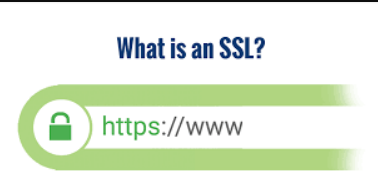Introduction: Website security is crucial in the modern digital environment.Ensuring the safety of user data and protecting against cyber threats is not only essential for building trust with your audience but also for improving your search engine rankings. One of the most effective ways to achieve both is by implementing SSL encryption and transitioning your website to HTTPS. In this blog post, we'll explore the significance of SSL encryption, its impact on SEO, and provide a step-by-step guide to securing your website.
- Understanding
SSL Encryption: Using the SSL (Secure Sockets Layer) cryptographic protocol, a secure connection is created between a user's browser and a web server.
It encrypts data transmitted over the internet, making it unreadable to
anyone attempting to intercept it. SSL certificates are used to validate
the identity of the website and enable the HTTPS (Hypertext Transfer
Protocol Secure) protocol.
- The
Importance of SSL for Website Security: Implementing SSL encryption offers
numerous benefits for website security:
a. Data Integrity: SSL ensures that data exchanged between a
user's browser and your website remains intact and unaltered during
transmission, preventing unauthorized modifications.
b. Authentication: SSL certificates verify the authenticity
of your website, assuring visitors that they are interacting with a legitimate
and trustworthy entity. This is particularly crucial for e-commerce websites
and platforms handling sensitive information.
c. Encryption: SSL encryption encrypts sensitive user data,
such as login credentials, credit card details, and personal information,
safeguarding it from potential hackers and identity thieves.
- SSL's
Impact on SEO: Apart from bolstering website security, SSL encryption can
positively impact your SEO efforts:
a. Search Engine Preference: Search engines, like Google,
prioritize secure websites and give preference to those using HTTPS. This means
that SSL encryption can give your website a ranking boost in search engine
results pages (SERPs).
b. Trust and User Experience: With HTTPS, visitors see the
padlock symbol and "Secure" label in their browser, providing visual
cues that your website is safe to use. This can enhance user trust and increase
the likelihood of engagement and conversions.
c. Referrer Data: HTTPS preserves referral data, allowing
you to see the source of your website's traffic accurately. Without SSL
encryption, referral data can be lost, leading to incomplete analytics and
marketing insights.
- Implementing
SSL Encryption (Step-by-Step Guide): Here's a simplified guide to securing
your website with SSL encryption:
Step 1: Choose an SSL certificate: Decide between a
single-domain, multi-domain, or wildcard SSL certificate based on your
website's needs.
Step 2: Purchase an SSL certificate: Obtain the SSL
certificate from a reputable Certificate Authority (CA). Several CAs offer SSL
certificates at varying prices.
Step 3: Generate a certificate signing request (CSR): Follow
your web hosting provider's instructions to create a CSR, which will be used to
authenticate your website.
Step 4: Install the SSL certificate: Provide the CSR to the
CA and complete the authentication process. Once approved, install the SSL
certificate on your web server.
Step 5: Update internal links and resources: Update all
internal links, images, and other resources to use HTTPS instead of HTTP.
Step 6: Implement 301 redirects: Set up 301 redirects to
ensure that all HTTP requests are automatically redirected to the HTTPS version
of your website.
Step 7: Update external references: Update any external
references to your website (e.g., backlinks) to point to the HTTPS version.
Conclusion: Implementing SSL encryption and transitioning
your website to HTTPS not only enhances its security but also has a positive
impact on SEO. By securing user data, establishing trust, and potentially
improving search engine rankings, SSL encryption is an essential step for any
website owner. Follow the step-by-step guide provided to ensure a smooth
transition to HTTPS and enjoy the benefits of a safer and more visible online
presence.










